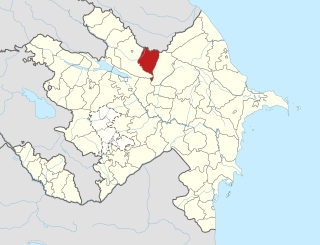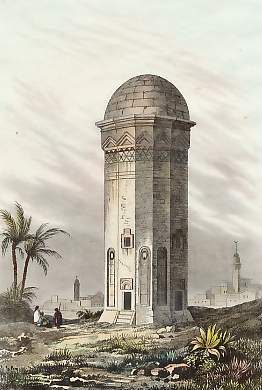
The history of Turkmenistan traditionally began with the arrival of Indo-European Iranian tribes around 2000 BC. Early tribes were nomadic or semi-nomadic due to the arid conditions of the region that prevented widespread adoption of agriculture, and the steppe culture in Central Asia was an extension of a larger Eurasian series of horse cultures which spanned the entire spectrum of language families, including the Indo-Europeans and Turko-Mongol groups. Some of the known early Iranian tribes included the Massagatae, the Scythians/Sakas, and early Soghdians, who were most likely precursors of the Khwarezmians. Turkmenistan was a passing point for numerous migrations and invasions by tribes, which gravitated towards the settled regions of the south, including ancient Mesopotamia, Elam, and the Indus Valley civilization.

The Oghuz or Ghuzz Turks were a western Turkic people that spoke the Oghuz branch of the Turkic language family. In the 8th century, they formed a tribal confederation conventionally named the Oghuz Yabgu State in Central Asia. The name Oghuz is a Common Turkic word for "tribe". Byzantine sources call the Oghuz the Uzes. By the 10th century, Islamic sources were calling them Muslim Turkmens, as opposed to Tengrist or Buddhist. By the 12th century, this term had passed into Byzantine usage and the Oghuzes were overwhelmingly Muslim. The term "Oghuz" was gradually supplanted among the Turks themselves by the terms Turkmen and Turcoman, from the mid-10th century on, a process which was completed by the beginning of the 13th century.
Oghuz or Oğuz may refer to:

Turkmen, sometimes referred to as "Turkmen Turkic" or "Turkmen Turkish", is a Turkic language spoken by the Turkmens of Central Asia, mainly of Turkmenistan, Iran, and Afghanistan. It has an estimated 5 million native speakers in Turkmenistan, a further 719,000 speakers in northeastern Iran, 1.5 million people in northwestern Afghanistan. Turkmen has official status in Turkmenistan, but it does not have official status in Iran and Afghanistan, where big communities of ethnic Turkmens live. Turkmen is also spoken to lesser varying degrees in Turkmen communities of Uzbekistan and Tajikistan and by diaspora communities, primarily in Turkey and Russia.

Oghuz District is one of the 66 districts of Azerbaijan. It is located in the north of the country and belongs to the Shaki-Zagatala Economic Region. The district borders the districts of Shaki, Qabala, Agdash, and the Russian Republic of Dagestan. Its capital and largest city is Oghuz. As of 2020, the district had a population of 44,700.

The Book of Dede Korkut or Book of Korkut Ata is the most famous among the epic stories of the Oghuz Turks. The stories carry morals and values significant to the social lifestyle of the nomadic Turkic peoples and their pre-Islamic beliefs. The book's mythic narrative is part of the cultural heritage of the peoples of Oghuz Turkic origin, mainly of Turkey, Azerbaijan, and Turkmenistan. Only two manuscripts of the text, one in the Vatican and one in Dresden, were known until 2018, when the Gonbad manuscript was discovered.

Oğuz, formerly known as Vartashen, is a city, municipality and the capital of the Oghuz District of Azerbaijan. The village was populated by Armenians and Udis before the exodus of Armenians from Azerbaijan after the outbreak of the Nagorno-Karabakh conflict.

The Kayı or Kayi tribe were an Oghuz Turkic people and a sub-branch of the Bozok tribal federation. In his Dīwān Lughāt al-Turk, the 11th century Kara-Khanid scholar Mahmud al-Kashgari cited Kayı as of one of 22 Oghuz tribes, saying that Oghuz were also called Turkomans. The name Kayı means "the one who has might and power by relationship" and the Turkmen proverb says that "people shall be led by Kayi and Bayat tribes" .

Khorasani Turkic is an Oghuz Turkic language spoken in the North Khorasan Province and the Razavi Khorasan Province in Iran. Nearly all Khorasani Turkic speakers are also bilingual in Persian.

The Aq Qoyunlu was a culturally Persianate, Sunni Turkoman tribal confederation founded in the Diyarbakir region by Qara Yuluk Uthman Beg that ruled parts of present-day eastern Turkey from 1378 to 1503, and in their last decades also ruled Armenia, Azerbaijan, much of Iran, Iraq, and Oman where the ruler of Hormuz recognised Aq Qoyunlu suzerainty. The Aq Qoyunlu empire reached its zenith under Uzun Hasan.

Afshar is a tribe of Oghuz Turkic origin, that split into several groups in Iran, Turkey and Afghanistan.

Oghuz Khagan or Oghuz Khan is a legendary khan of the Turkic people and an eponymous ancestor of Oghuz Turks. Some Turkic cultures use the legend of Oghuz Khan to describe their ethnic and tribal origins. The various versions of the narrative preserved in many different manuscripts has been published in numerous languages as listed below in the references. The narratives about him are often entitled Oghuzname, of which there are several traditions, describing his many feats and conquests, some of these tend to overlap with other Turkic epic traditions such as Seljukname and The Book of Dede Korkut.

The Oghuz Yabgu State was a Turkic state, founded by Oghuz Turks in 766, located geographically in an area between the coasts of the Caspian and Aral Seas. Oghuz tribes occupied a vast territory in Kazakhstan along the Irgiz, Yaik, Emba, and Uil rivers, the Aral Sea area, the Syr Darya valley, the foothills of the Karatau Mountains in Tien-Shan, and the Chui River valley. The Oghuz political association developed in the 9th and 10th centuries in the basin of the middle and lower course of the Syr Darya and adjoining the modern western Kazakhstan steppes.
Khalkhal or Khalkhāl or Khal Khal may refer to:
Xalxalqışlaq is a village and the least populous municipality in the Oghuz Rayon of Azerbaijan. It has a population of 249.
Yanıqlı is a village and municipality in the Tovuz Rayon of Azerbaijan. It has a population of 2,395. The municipality consists of the villages of Yanıqlı, Böyük Xoşdarlı, Sadıqlı, and Kəcavənd.
Xalxal is a village and municipality in the Babek District of Nakhchivan, Azerbaijan. It is located 19 km in the north from the district center, on the left bank of the Nakhchivanchay River, on the foothill area. Its population is busy with gardening, grain-growing, poultry and animal husbandry. There are secondary school, library, club, mosque and a medical center in the village. It has a population of 568.

The Oghuz languages are a sub-branch of the Turkic language family, spoken by approximately 108 million people. The three languages with the largest number of speakers are Turkish, Azerbaijani and Turkmen, which, combined, account for more than 95% of speakers.

Turkoman or Turkmen was a term for the people of Oghuz Turkic origin, widely used during the Middle Ages. Oghuz Turks were a western Turkic people that, in the 8th century A.D, formed a tribal confederation in an area between the Aral and Caspian seas in Central Asia, and spoke the Oghuz branch of the Turkic language family.
















